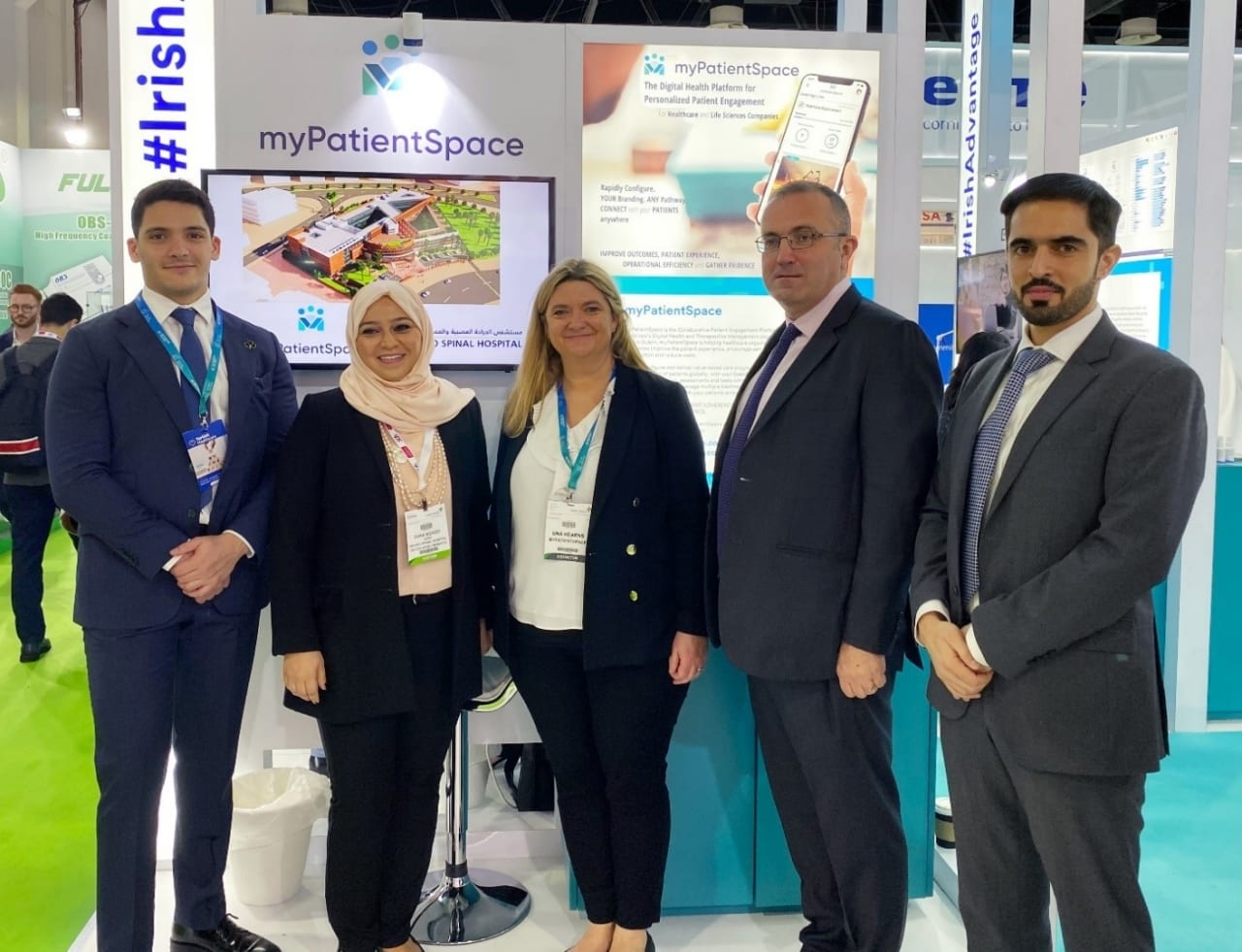Imed Abnoun, market executive for Enterprise Ireland Dubai, outlines partnership opportunities for Irish medtech innovators in the UAE and across the Gulf region.
 As part of its Brexit response, Enterprise Ireland has focused efforts on supporting Irish companies to identify new market diversification opportunities, including the Gulf region, which has become an important market for Ireland. Entering a new export market is an important strategic decision for any company but with the right preparation the rewards can be mutually beneficial.
As part of its Brexit response, Enterprise Ireland has focused efforts on supporting Irish companies to identify new market diversification opportunities, including the Gulf region, which has become an important market for Ireland. Entering a new export market is an important strategic decision for any company but with the right preparation the rewards can be mutually beneficial.
The Middle East’s largest healthcare exhibition, Arab Health 2020, took place in Dubai in January, demonstrating that the healthcare sector provides a strong example of how Irish pharmaceutical and medtech companies can enter the market or expand further to meet rapidly rising demand in the UAE and wider Gulf region for world-class innovative products, services and expertise across the full spectrum of the healthcare sector.
Healthcare opportunities in the UAE
In the UAE alone, this strong demand is clear with market analysis estimating that spending on healthcare will reach $3.6 billion by 2030. Irish healthcare companies are ready to forge new partnerships with healthcare providers in the UAE to provide patients with the latest world-leading innovations that further enhance the patient experience, improve patient outcomes, and supply lifesaving technologies that are used in healthcare systems worldwide.
Ireland and the UAE already have strong economic ties and mutually beneficial partnerships, including across the healthcare sector. Take, for example, the partnership in Dubai that Martin Dunne, the Director of Ireland’s National Ambulance Service has focused on. Martin has been actively supporting the Dubai Ambulance Service in the provision of training for paramedics, equipping them with world-class life-saving professional training and development. Ireland’s National Ambulance Service, in partnership with the Higher Colleges of Technology in Dubai, provides the curriculum and accreditation for diplomas in emergency medical services that train paramedics and advanced paramedics with life-saving skillsets that benefit Dubai and the UAE.
The partnership is a good example of health diplomacy in action, through country-to-country institutional collaboration that mutually benefits all parties, both public and private sector and country-to-country bilateral relations, and ultimately leads to lives being saved in Dubai.
However, the collaboration goes further than education and training. The Dubai Ambulance Service is equipped with cutting-edge Irish hardware and software related to patient and paramedic safety, operational efficiency, and fleet maintenance and diagnostics. Irish company Acetech, a global manufacturer of vehicle intelligence solutions for emergency service fleets, provide this hardware and software.
At Arab Health 2020, we saw further collaboration between the 14 Irish companies hosted on the Ireland pavilion in the medtech, digital health and pharmaceutical sectors and healthcare providers from across the region – resulting in 10 major contract signings. The companies showcasing their world-leading expertise included:
- Medentech (Kersia Group)
- myPatientSpace
- Empeal
- MEG Support Tools
- GetReferd
- Tapa Healthcare
- Aerogen
- Novaerus
- Theya Healthcare
- Profilo Smart
- Maria Medical Technology
- Precision Biotics
- CF Pharma
- Fleming Medical.
From its life sciences sector, with a vibrant pharmaceutical industry that exports almost €70 billion annually, through to the innovation of the medtech sector, with exports of €12.6 billion to over 100 countries worldwide, the Irish healthcare industry is a big success story. In the UAE alone, 40% of all Irish goods exports last year were pharma, wellness and medicines-related. Ireland is a global leader in the medtech industry and will seek to leverage its innovative expertise to meet the demand in the region in a sector estimated to be worth $31.6 billion by 2025.
The UAE and Ireland recognise the significant mutual benefits that arise from collaboration and partnership. Arab Health 2020 added a new chapter to this, helping to shape the healthcare services of both countries to benefit their people.



